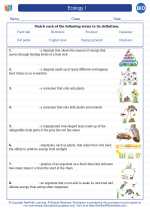Engineering
Engineering is the application of scientific and mathematical principles to design and create structures, machines, and systems that benefit humanity. It is a diverse and dynamic field that encompasses a wide range of disciplines, including civil, mechanical, electrical, chemical, and biomedical engineering.
Types of Engineering
There are several major branches of engineering, each with its own specialized focus:
- Civil Engineering: Involves the design and construction of infrastructure such as buildings, roads, bridges, and dams.
- Mechanical Engineering: Focuses on the design and development of mechanical systems, including engines, machines, and manufacturing processes.
- Electrical Engineering: Deals with the study and application of electricity, electronics, and electromagnetism, and includes fields such as power systems, telecommunications, and control systems.
- Chemical Engineering: Involves the design and operation of processes for the production of chemicals, fuel, pharmaceuticals, and materials.
- Biomedical Engineering: Integrates engineering principles with medical and biological sciences to develop technologies and devices for healthcare and medical research.
Skills Required for Engineering
Successful engineers possess a combination of technical, analytical, and problem-solving skills, as well as creativity and a strong understanding of mathematics and science. Additionally, communication and teamwork are essential for collaborating with other professionals and effectively communicating ideas and solutions.
Study Guide for Engineering
If you are interested in pursuing a career in engineering, here are some key areas to focus on:
- Mathematics: Develop a strong foundation in calculus, algebra, and trigonometry, as these are essential for solving engineering problems.
- Science: Gain a solid understanding of physics, chemistry, and biology, as engineering often involves the application of scientific principles.
- Technology: Familiarize yourself with computer-aided design (CAD) software and programming languages, as these tools are commonly used in engineering design and analysis.
- Problem-Solving: Practice solving complex problems and developing logical and systematic approaches to finding solutions.
- Hands-On Experience: Seek out opportunities to participate in engineering-related projects, internships, or extracurricular activities to gain practical experience and apply theoretical knowledge.
- Communication Skills: Work on improving your ability to communicate technical concepts and ideas effectively, both verbally and in writing.
By focusing on these areas and gaining a solid understanding of the fundamental principles of engineering, you can prepare yourself for a successful career in this exciting and impactful field.
[Engineering] Related Worksheets and Study Guides:
.◂Biology Worksheets and Study Guides High School. Ecology I
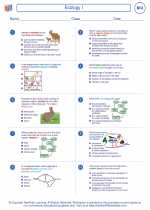
 Worksheet/Answer key
Worksheet/Answer key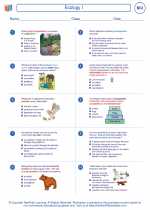
 Worksheet/Answer key
Worksheet/Answer key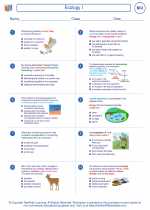
 Worksheet/Answer key
Worksheet/Answer key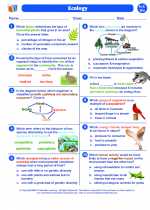
 Vocabulary/Answer key
Vocabulary/Answer key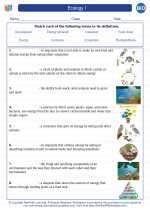
 Vocabulary/Answer key
Vocabulary/Answer key